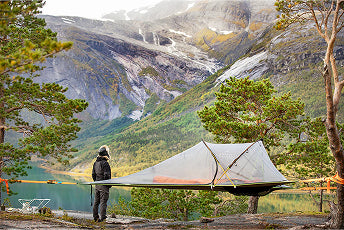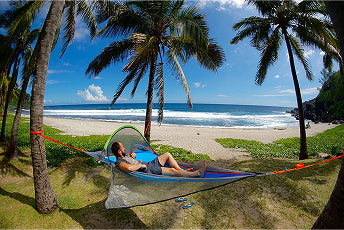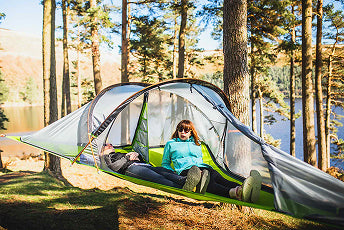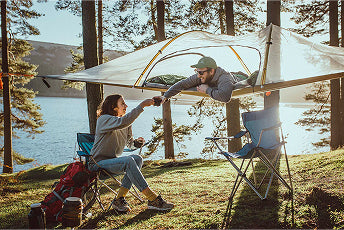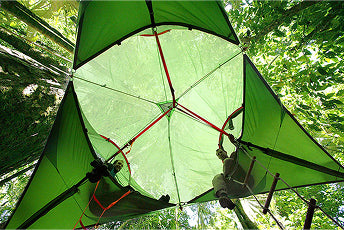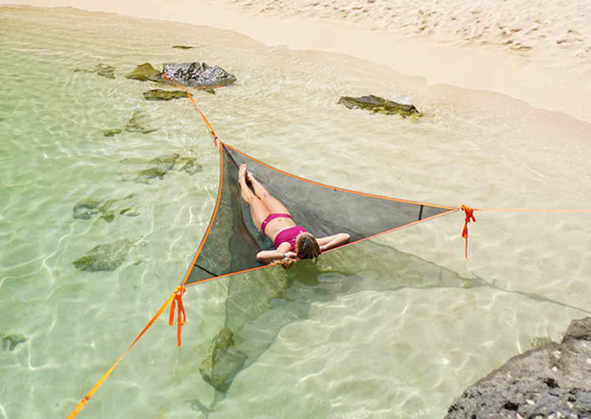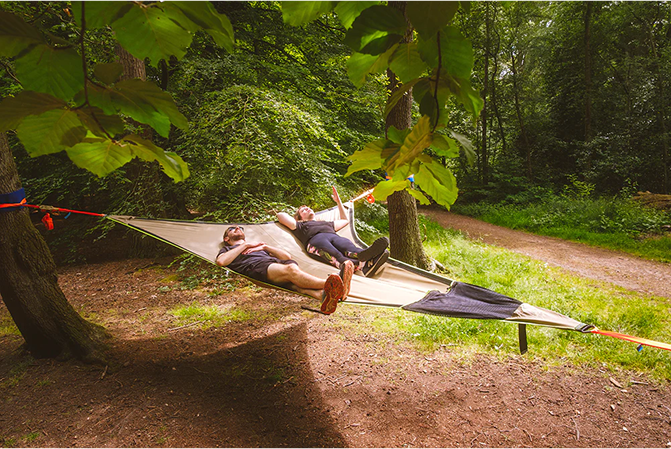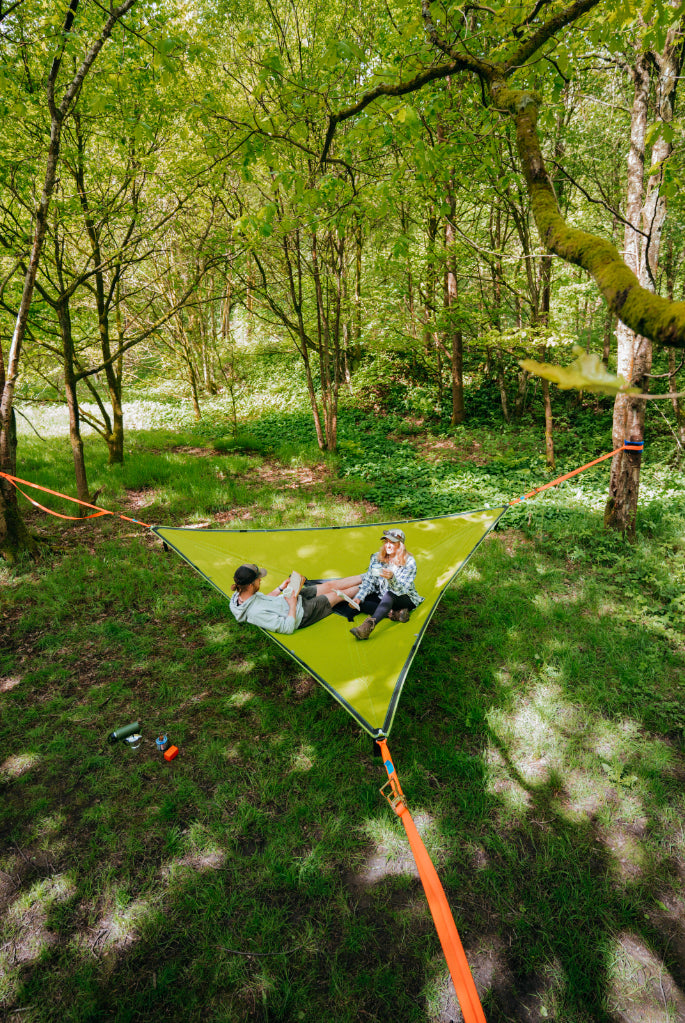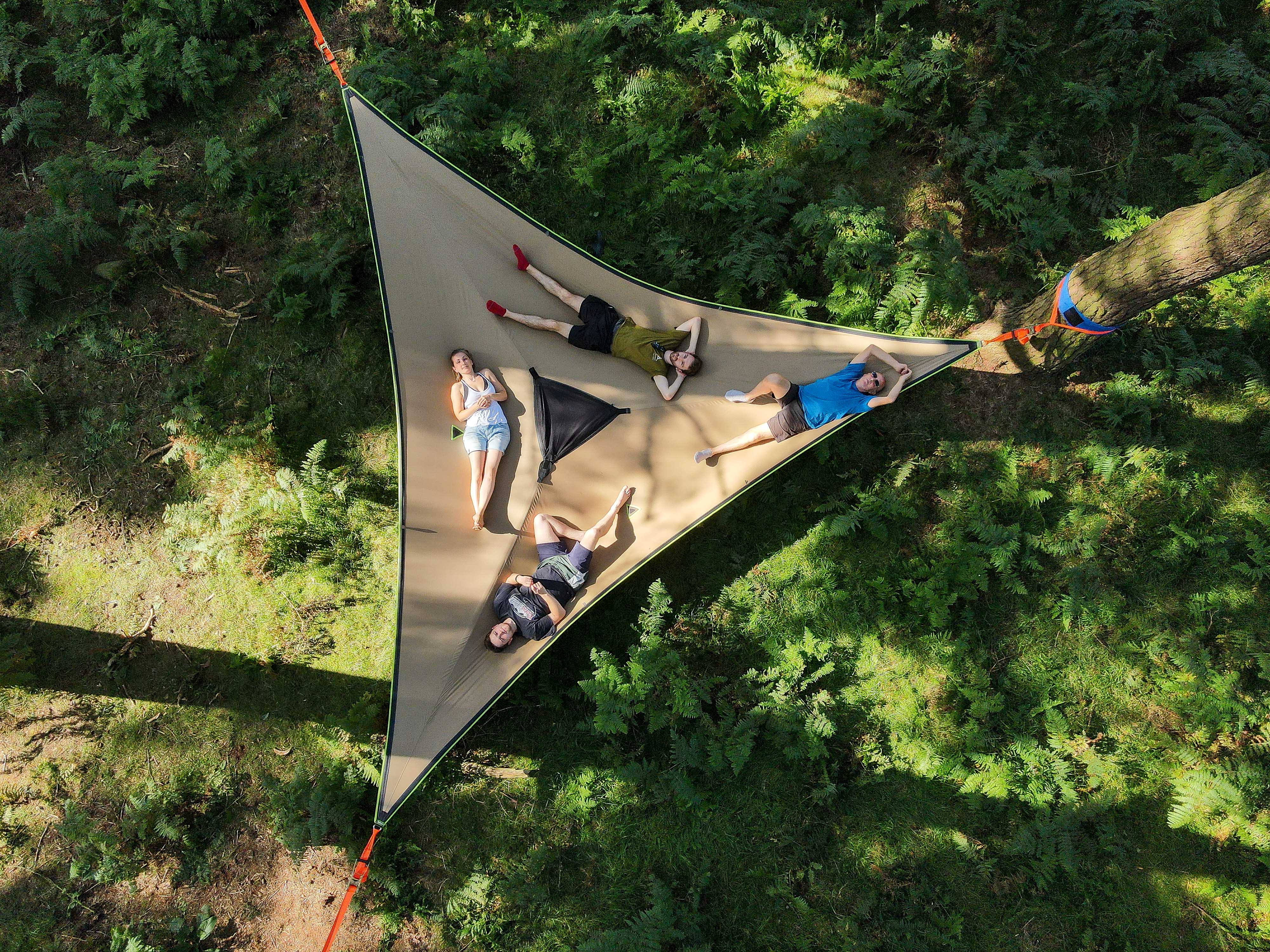Plastic Free July is a global cause, helping to educate millions of people on plastic pollution and how to become part of the solution – so we can have cleaner streets, oceans, and beautiful communities, for generations to come. It is no exaggeration to say that if we do not all collectively act now, we are submitting our planet to centuries, and millennia of problems far into the future. Of course, tree planting is at the heart of much of Tentsile's environmental work - but no less equal in importance is the plastic catastrophe we are faced with, which is why we join the call.
A world driven by convenience has led to a throw-away culture fuelling a plastic environmental crisis. As the UN puts it ‘our planet is choking on plastic’ and it’s our addiction to single-use plastic specifically which has caused it. We have become over dependant on this man-made material and we must reduce our reliance in order to help solve the problem. Single-use plastics have become so deeply engrained in our consumer habits that for decades we barely recognised the issue, nor realised just how much we collectively consumed of this convenient, but environmentally destructive material.
Here’s some scary facts:
- 1 million plastic bottles are purchased every minute.
- Up to 5 trillion plastic bags are used worldwide every year.
- Half of all plastic produced is for single-use purposes i.e. designed to be used once and then thrown away.
- Today, about 380 million tonnes of plastic is produced every year.
- Based on historic growth trends, it’s forecasted that by 2050, plastic production will reach 1,100 million tonnes.
- Only 9% of all plastic is recycled and just 12% is incinerated – the rest ends up in landfill, dumps, streets, parks, forests, oceans. It litters our planet.
Sobering facts. Why on earth would we need to be generating so much of something that becomes obsolete so quickly, yet takes centuries to decompose (est. 450yrs for a single plastic bottle)? And even when our plastic waste does 'disappear' from our shorelines and ocean surfaces, ground down by the elements, we're left with the trillions upon trillions of micro-plastics polluting our environment:
"Every year, tens of millions of tons of plastic enter Earth’s oceans. Scientists initially assumed that the material was destined to float in garbage patches and gyres, but surface surveys have accounted for only about one percent of the ocean’s estimated plastic. A recent model found that 99.8 percent of plastic that entered the ocean since 1950 had sunk below the first few hundred feet of the ocean. Scientists have found 10,000 times more microplastics on the seafloor than in contaminated surface waters." The New York Times
Discover more over at the UN Environment Programme.
Every little helps – change today, preserve tomorrow
Plastics and single-use plastic has permeated our everyday lives and while our governments can and should be doing more to help combat this global pandemic, we as individuals need to change too. It’s not enough to just recycle our plastic, we need to cut back on it altogether. And that’s what Plastic Free July is all about, changing our habits and reliance on plastic. The time is now. So here’s some small changes you can make within your everyday life.
Make it a habit – here’s 10 ways you can change today:
- Stop using takeaway coffee cups – invest in a reusable cup and remember to take it out with you.
- Swap liquid soap for soap bars to avoid single use plastic bottles. Even Shampoo and Conditioner now come in handy bar form, completely eradicating plastic waste.
- Use useable shopping bags.
- Find plastic free alternatives when buying fruit and veg.
- Don’t buy bottled water – invest in a water bottle.
- Refuse plastic straws when ordering a drink at a restaurant or bar. Not a fan of the cardboard straw? Take your own reusable one!
- Switch to plastic free dishcloths (yes, dishcloths contain micro-plastics. Yuk).
- Buy less – avoid disposable products packaged in disposable plastic.
- Buy in bulk – choose bulk or loose foods, avoiding pre-packaged items.
- Look for alternative products packed in paper, glass or nothing at all!
Becoming less dependent on plastic is definitely a journey we’re all on, especially here at Tentsile too. And we’re certainly not there yet, there’s still so much more to do. Last year we stopped using any single-use plastic in our factory and instructed all our suppliers not to use plastic packaging in the transportation of our materials.
What you can expect from us now:
- We’ve switched from plastic tape to recyclable gum tape.
- All our boxes are made from 100% recyclable cardboard and are 100% recyclable.
- We’ve replaced our plastic pouches with reusable drawstring bags made from off-cuts of our tree tent material.
- Where we used elastic bands or plastic cable ties, these have been replaced with a reusable material straps.
- Instead of using plastic tags for our labels, we’ve replaced this with natural twine – which you could re-use when gardening if you’ve got green fingers!
- Our product manuals no longer have a plastic coating (making them water resistant), so if you lose them while out camping, the manual will easily degrade.
We’ve also created our growing Ocean range of Tree Tents and Hammocks which are made from plastic reclaimed from the ocean. The Ocean UNA hammock tent is made from the equivalent of 128 plastic bottles and the Ocean Solo Hammock from the equivalent of 37 plastic bottles.
But perhaps most importantly of all - we are dedicated to creating products that LAST. The culture of disposable consumerism has to end, and to knock that on the head it takes brands to stand up and be counted. Create robust, hardwearing, exceptional quality product that isn't designed to fail after a few uses so you have the buy another one and we can make a quick buck. Quite the opposit in fact - nothing gives us more joy than a customer from 2015 getting in touch to say their Stingray Tree Tent is still going strong!
On top of all of that, we also have an Upcycling program in partnership with a Utah based University that helps give products that have reached the end of their usable life a new purpose and divert them from landfill.
So, that concludes our round up which we hope serves to show that with a little bit of effort, each of us - business and individuals alike - can change habits of a lifetime and help protect our planet from the harmful effects of plastic pollution.
Join the fight against plastic #BeatPlasticPollution for #CleanSeas and find out what you can do to help this Plastic Free July.

